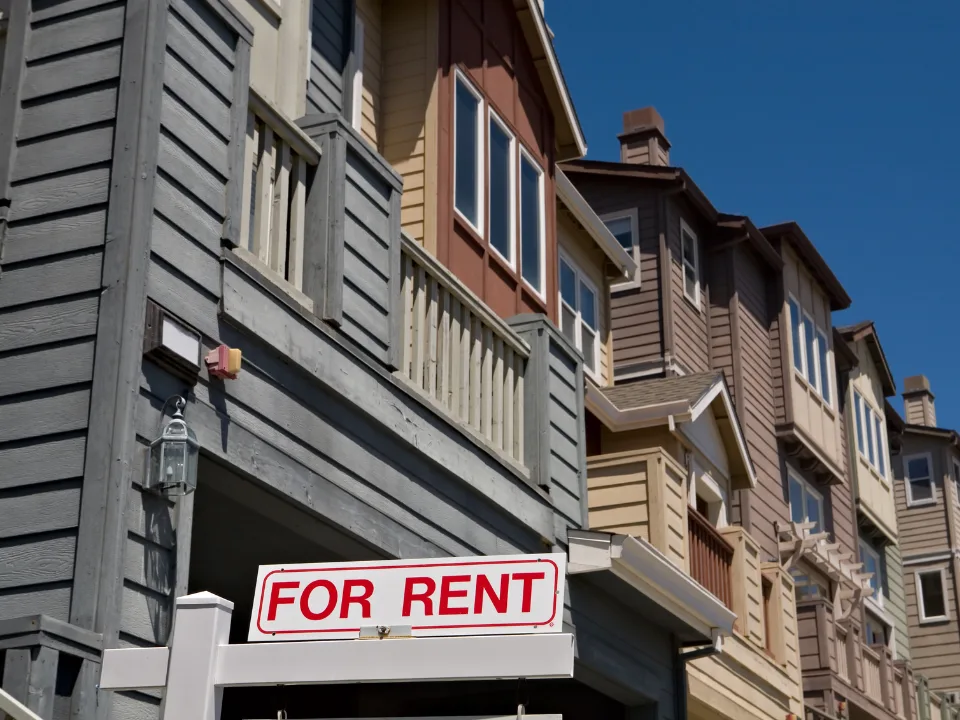The Reality of Handing Back the Keys
The rise in remote work has sparked a downturn in the office sector, causing more property owners to give up their properties to lenders. But this growing trend merely hints at the complex, unseen negotiations and choices driving these significant decisions.
Together with
Good morning. Commercial real estate borrowers and lenders find themselves in a high-stakes standoff over handing back the keys. In Texas, property owners anticipate tax cuts and improved homesteading incentives thanks to a compromise plan among state legislators. On another note, while apartment demand is picking up, it still lags behind the influx of new units.
Today’s edition is brought to you by Lloyd Jones, a global real estate investment firm with expertise in senior living operations and multifamily.
Market Snapshot
|
|
||||
|
|
*Data as of 7/11/2023 market close.
👋 First time reading? Sign up here.
KNOCK KNOCK
Behind Closed Doors: What Happens When Borrowers Hand Back the Keys

AS THE ASSET CLASS OF DOWNTOWN OFFICE BUILDINGS BECOME STRUCTURALLY IMPAIRED, MORE OWNERS ARE TRYING TO HAND BACK THE KEYS TO THEIR LENDERS.
In the wake of increased remote work, the office sector has experienced a significant downturn, leading property owners to increasingly surrender their properties to lenders. However, this growing trend barely touches on the intricate behind-the-scenes negotiations and decisions that shape these drastic outcomes.
The rules of the game: Handing back the keys isn’t as straightforward as it sounds. It’s a complex process involving various factors and negotiations that can become contentious. Stakeholders such as Shlomo Chopp and Robert Verrone note that each negotiation strategy varies based on lender identity and financing methods. For instance, banks and non-mortgage lenders may respond differently to the same situation. Additionally, loan documents often don’t provide a straightforward clause for returning the keys.
Unwanted gifts: Lenders, such as JPMorgan Chase, often struggle with managing surrendered properties due to a lack of resources and expertise. While these properties are resource-intensive, personal relationships between borrowers and lenders can sway decisions.
What happens next: Michael Cohen, managing partner at Brighton Capital Advisors, breaks down the typical process when an underwater balance sheet loan defaults. The lender sends a foreclosure notice while exploring other resolutions. If the borrower is mismanaging the property, the lender can temporarily oversee it. Loan documents, such as recourse and nonrecourse carve-outs, play a crucial role during this phase.
High stakes: Major players like Brookfield and RXR have defaulted on substantial loans. With $92B due in 2023 and another $58B in 2024, according to the Mortgage Bankers Association, defaults are expected to rise.
➥ THE TAKEAWAY
Big picture: Surrendering properties to lenders is a complex process with potential challenges for both borrowers and lenders. Understanding the dynamics and negotiation strategies involved can help borrowers navigate the changing office sector landscape. However, it’s important to recognize that in default situations, nobody truly wins. Real estate investing requires patience and capital to weather uncertain times.
TOGETHER WITH LLOYD JONES
Value-Add Senior Housing Investment Opportunity

Lloyd Jones is inviting accredited investors to invest in a unique value-add opportunity within the thriving senior-housing market. We invite you to explore Aviva Country Club Heights, a senior-living community located in the Boston suburb of Woburn, MA.
-
Prime Location: The community overlooks the picturesque Woburn Country Club and Golf Course and is well positioned with easy access to I-95 that provides direct entry into downtown Boston. The property benefits from being located less than three miles from Lahey Hospital and Medical Center, providing residents with more than 1,400 providers in adult primary care.
-
Favorable Demographics: Within a five-mile radius, the area supports a strong senior population with 11,300 income-qualified tenants over the age of 75. The area has a projected 23% growth rate by 2026 and a steady 16.5% projected growth rate in senior median income from $64,111 to $75,019.
-
Value-Add Strategy: Lloyd Jones purchased the cash-flowing property at below replacement cost, creating an immediate upside opportunity. With a vision to create the most appealing senior residence in the area, plans to refresh the property’s exterior and elevate its amenities are currently being implemented.
Celebrating 43 years under the continuing leadership of Christopher Finlay, Lloyd Jones has become a global real estate investment firm with subsidiaries in development, construction, and senior living operations. As a vertically integrated firm, Lloyd Jones has successfully handled over $1.2B in transaction volume and has an average gross IRR of 29% on realized investments.
To get access to this investment, sign up here.
This post contains sponsored advertising content. Past performance is not indicative of future results.
RELIEF ACHIEVED
Texas Lawmakers Reach Breakthrough $18B Deal on Property Taxes

Lt. Gov. Dan Patrick and House speaker Dade Phelan (TexansForDade, ltgov.texas.gov, Getty)
Most Texas homeowners don’t even know how happy they should be yet. Lawmakers have reached a breakthrough deal on property taxes in the Lone Star State following a dispute over how to allocate a budget surplus for property tax relief.
That’s what you call a homestead: Under the agreed legislation, up to $100,000 of a home’s value will be exempt from school property taxes, providing relief to property owners. This adds up to an estimated $18B in tax relief for homeowners. The cap on homestead appraisals will also be lowered, and homestead exemptions will be increased.
What about the schools? The proposal aims to reduce school property taxes by nearly 11 cents per $100 of assessed value, which would result in $12M in tax relief over the next two years. School districts will receive state funds to compensate for the loss of property tax revenue.
Checks and balances: In addition to residential properties, the legislation introduces a 20% circuit breaker on appraised values for non-homesteaded properties valued at $5M or less. This circuit breaker, serving as a pilot project, applies to both commercial and residential properties and adjusts property taxes based on income.
➥ THE TAKEAWAY
Good news: The agreed-upon property tax relief package represents a significant win for Texas property owners. It addresses taxpayer concerns and provides substantial relief from escalating property taxes. Pending voter approval, the legislation is expected to benefit 5.7 million homeowners in Texas.
AROUND THE WEB
📖 Read: Based on 1H23 results, companies are selling assets to lower leverage amid higher borrowing costs. In the next two years, properties with debt maturities may face challenges obtaining financing or selling at adequate prices, potentially leading to significant discounts and losses.
🖥️ Watch: NYC’s iconic skyline is shaped by factors like public engagement, neighborliness, and adaptive reuse. Marvel Architects, Fogarty Fingers, and Stonehill Taylor discuss how to create standout city towers in this segment from The Real Deal.
🎧 Listen: to Max Gross, Editor in Chief of Commercial Observer, and Nicolas Rizzi, Web Editor of Commercial Observer, as they analyze the absence of prominent New York political figures in this year’s Power 100 List and discuss the implications for the real estate industry.
MULTIFAMILY MOVES
Net Demand Bounces Back, But New Supply Poses Challenges

The multifamily sector is experiencing a rebound in net demand this year, indicating a return to pre-pandemic levels. However, the surge in new supply poses challenges to occupancy rates and rent growth.
Demand recovery: Apartment demand is rebounding this year, with net absorption reaching 83K units in Q2, according to RealPage. This marked a five-quarter high. However, demand still lags behind new supply, with over 107K apartment units completed in the same quarter and more than 1M units under construction. The Sun Belt and Mountain regions have seen the majority of net new demand, with Houston, Phoenix, and Dallas/Fort Worth leading the way.

Occupancy stabilizes: Despite increased supply, apartment occupancy remains stable. U.S. apartment occupancy in June stood at 94.7%, down just 0.1% since January. This is a significant improvement compared to the 1.2% decline in the year’s first half. Most major markets reported occupancy rates of 93%+ in June, with some exceptions in Memphis (92.1%) and San Antonio (92.2%).
Muted rent growth: Asking rents continue to experience muted growth, with a minimal increase of 0.46% between May and June. Effective asking rent growth reached 1.5% YoY, the lowest since early 2021. Rent cuts have been observed in 35 of the nation’s largest markets, particularly in the South, Desert, Mountain regions, and along the West Coast. College towns and certain Midwest and Northeast markets have shown more solid rent growth, with increases ranging from 6–10%.

➥ THE TAKEAWAY
A tale of five regions: While occupancy remains relatively stable, supply is outpacing demand in many markets, leading to increased competition and pressure on rents. Rent growth has been muted overall, with significant rent cuts observed in certain markets. On the other hand, college towns and select Midwest and Northeast markets continue to experience solid rent growth.
✍️ Daily Picks
-
Reviving the restaurant boom: Demand for sit-down dining is improving in the U.S. as evidenced by recent restaurant portfolio deals, including the sale of 44 Bob Evans restaurants for $93M.
-
I ain’t buying it: Republicans have proposed relocating the FBI headquarters to Huntsville, Alabama, due to criticism of biased investigation of Trump by the current bureau.
-
Servicing stress: Trepp reports that the CMBS Special Servicing Rate shot up to 6.42% in June, with notable increases in the office, multifamily, and mixed-use sectors.
-
Conference exits: San Francisco’s CRE market suffers as tech giants Meta (META) and IBM (IBM) cancel major conferences at Moscone Center, reducing demand for hotel rooms.
-
From buildings to barns: Investors are turning to American farmland due to uncertainty in CRE, with farmland delivering strong returns and stability.
-
That’s a deal: 875 Sixth Avenue in Midtown South sells for $92.5M with 35% vacancy. Buyers plan to renovate.
-
Ruling relief: A federal court ruling in a JLL vs. D.C. landlord case leaves brokers relieved – formatting specifications are not required for dual representation disclosures.
-
Say it ain’t so: New York’s Margaritaville Resort Times Square hotel owner has filed for Chapter 11 bankruptcy protection to prevent a foreclosure auction.
-
Delinquency blues: In June, delinquency and special servicing rates for multifamily CMBS increased, along with overall CMBS market rates due to office property loan issues.
-
Developer’s deadly plans: Real estate developer Arthur Aslanian was found guilty of murder-for-hire and arson and is now facing over 60 years in prison.
-
Larger loan limits: HUD updated the “large loan” threshold for multifamily housing from $75M to $120M, easing restrictions on FHA-insured financing for various transactions.
-
Hitting rock bottom: The downturn in the CRE market has led to opportunities for long-term buying, with offices selling at bargain bin prices, but buyers should be cautious about cash flow.
📈 Chart of the Day

The CoreLogic HPI Forecast predicts a 1% rise in home prices from May to June 2023 on a monthly basis and a 4.5% annual increase from May 2023 to May 2024.
What did you think of today’s newsletter? |
HIT THE INBOX OF 65K+ CRE PROFESSIONALS
Advertise with CRE Daily to get your brand in front of the Who’s Who of commercial real estate. Subscribers are high-income decision makers, investors, and C-suite executives always looking for their next investment, product, or tool.



















